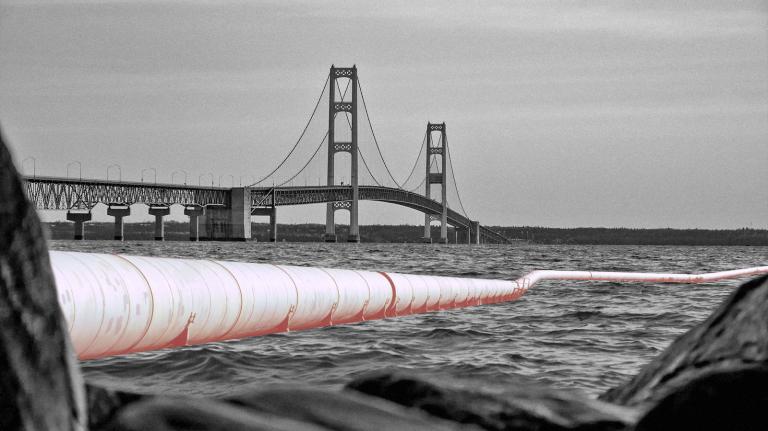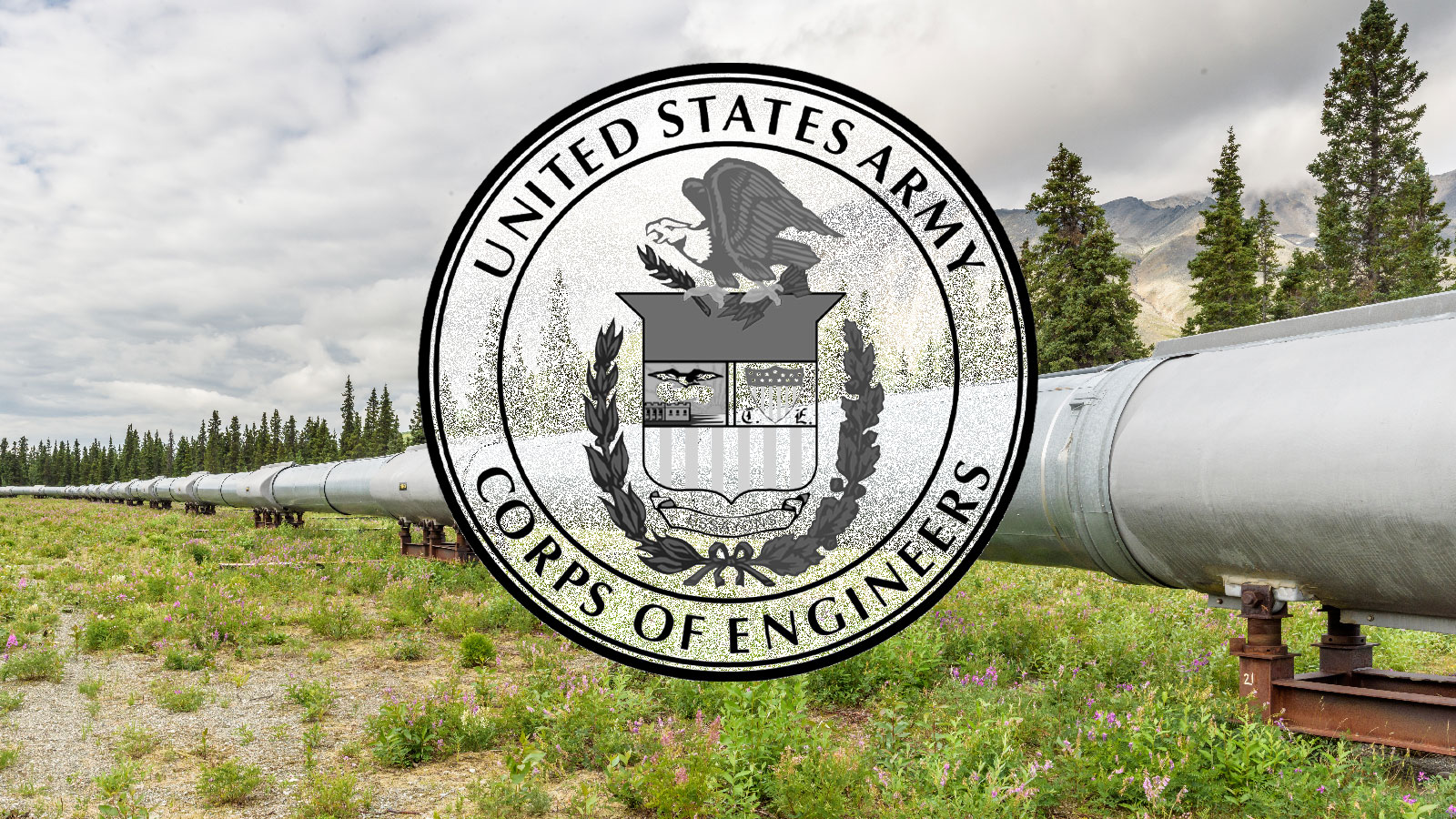Environmental advocacy groups are taking the U.S. Army Corps of Engineers to court over a permit that’s crucial for the construction of oil pipelines. A coalition of environmental advocacy organizations filed the lawsuit on Monday against the Army Corps, the federal agency that oversees civil works projects, over Nationwide Permit 12 (NWP12) in the U.S. District Court for the District of Montana.
A nationwide permit is a blanket permit — a streamlined alternative for infrastructure projects compared to applying for individual, project-specific permits. NWP12 has been issued every five years since the 70s, but during the Obama administration it started to be used for the construction of almost every major pipeline project, according to Jared Margolis, senior attorney at the Center for Biological Diversity, one of the plaintiffs in the suit. The permit has played a role in pipelines such as Keystone XL and the Dakota Access Pipeline.
But environmentalists argue that the permit was never meant to be used this way. NWP12 allows developers of pipelines and other infrastructure projects to bypass applying for an individual permit to cross streams, waters, and wetlands under the Clean Water Act, which usually requires extensive environmental analysis and public comment. Blanket permits are intended for projects that would have minimal impact on the environment, says Margolis. The new lawsuit argues that oil and gas pipelines do not fit that description, given the risk of spills and the environmental impacts of climate change. The Army Corps estimates that NWP12 is used 8,110 times per year.
This is not the first time a suit has been brought against NWP12 in federal court. In April 2020, the U.S. District Court for the District of Montana ruled that the Army Corps hadn’t adequately assessed the 2017 version of the permit’s impacts on endangered species under the Endangered Species Act, and that the permit couldn’t be used until such an assessment was completed. The Corps appealed, however, first to the Ninth Circuit, and eventually the Supreme Court. In July, the Supreme Court partially reversed the decision, reinstating the permit for all projects except Keystone XL.
Though the 2017 version of NWP12 was supposed to remain in place until 2022, the Army Corps reissued it in the final days of the Trump administration for another five years, evading the legal challenges to the prior version of the permit but doing nothing to remedy the violations under the Endangered Species Act, according to Margolis.
For Margolis, the environmental impact of NWP12 is partly about the energy future that is being created with the pipelines we build today. “Are we going to keep building infrastructure that locks us into fossil fuels for the next 20, 30, 40 years?” asked Margolis. NWP12 is “one of the keys to those projects.”
Now, advocates are looking to see how the Biden administration will respond. Biden has had a patchy track record on pipelines thus far in his administration: He came out swinging, canceling a key permit for Keystone XL on his first day, but since then, his record has been inconsistent. Recently, the Army Corps under Biden upheld the Trump-era position of continuing to allow the Dakota Access Pipeline to operate despite having had a key permit vacated by a federal judge.
Similarly, Margolis argues that the Biden administration should have acted faster in preventing NWP12 from taking effect. “Canceling Keystone XL on the first day was huge and sent a message,” said Margolis, “I don’t know if he’s been following through with that same message as strongly as we would like to see.” For now, NWP12 is on a list of permits under review by the Biden administration in accordance with an executive order he signed on his first day in office.
With respect to NWP12, “we need to step up and keep the pressure on, and that’s what we’re doing with this lawsuit — holding them to the fire a little bit,” said Margolis. “If we have to see it through through litigation, then we will.”




